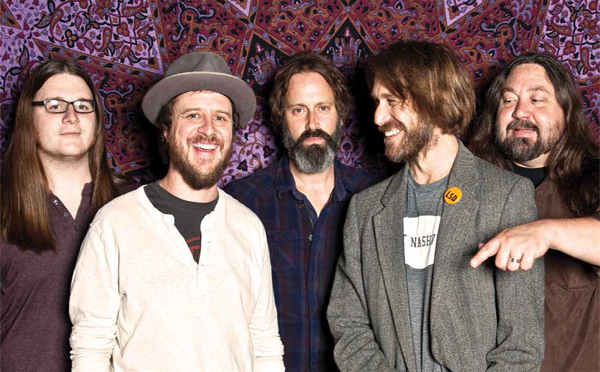Spotlight: Hard Working Americans

American literature is full of stories about extraordinary events and so-called great men—the kind whose triumphs and tribulations teach us some grand lesson about the human condition. Even the flawed characters tend to be remarkable in their own right. Jay Gatsby may have been destroyed by the American Dream, but at least he got to make it a reality.
Todd Snider has never been one to write songs for—or about—those kinds of people, and his latest project takes that idea to the next level. Hard Working Americans’ self-titled debut release is a concept album that charts the life of a regular, blue-collar guy throughout 11 tracks. It’s a conscious attempt to make music for the people whose stories don’t make it into the limelight.
“It’s for free-spirited people and people who feel oppressed or left out,” explains Snider. “I don’t really think that we’ll be catering to the handsome fellas on the football team or their cheerleader girlfriends.”
In an interesting move, Snider didn’t write any of the album’s tracks. Instead, the accomplished singer/songwriter chose to reinterpret songs by some of his fellow wordsmiths—Randy Newman, Lucinda Williams, Kevn Kinney and Hayes Carll, among others—with each song representing a milestone in the life of an average person. It was a hefty undertaking, but he surrounded himself with a stellar group of musicians who were more than up to the task.
“It started with David Schools,” says Snider. “I toured with Widespread Panic and I never understood or could figure out the deal. I just could see him leading with glances and nods. I was always knocked out by what a monster he sounded like, just like a fucking Seven Nation Army.”
“It was just sort of a dreamteam idea,” adds Schools. “Neal Casal has been an active recording artist for 20 years, at least. Certainly, the work he did with Ryan Adams and, more recently, with Chris Robinson Brotherhood has put him at the forefront of great guitar players, so that was really exciting. And I’ve known Duane Trucks since he was knee-high to a grasshopper. The only person I wasn’t aware of was Chad Staehly, the keyboard player, and he just came to the studio and completely wowed me. The question was: ‘Could all these great players play great together?’ And the answer was ‘Yes.’”
Snider’s vision of an album that tells the story of a hard working American was integral to the project, but it wasn’t the only thing the band was trying to accomplish. There was another current pushing the whole thing along and it was a bit more straightforward: These guys wanted to rock.
“Any group of musicians could have taken these songs and just recreated them but that’s not what we wanted,” explains Schools. “We wanted to create this band that would allow Todd to transcend the sort of peace, love and folk singer persona and let him be a rock-and-roll frontman.”
Or, as Snider puts it: “My hope is that people will get laid at our shows.”
Unsure of what to expect, the group convened at Bob Weir’s state-of-the-art TRI Studios in San Rafael, Calif., for a six-day session. It wasn’t a lot of time but, with the lyrics already down, the musicians were able to focus on crafting the raw, groove-based songs that Snider had envisioned. It didn’t seem to matter that none of them had ever recorded together. Their styles gelled naturally and everyone was having a blast.
“The surprising thing was how easy it was,” continues Schools. “Once we got together and found a common groove, it almost felt like we’d been playing together for 20 years. And maybe we had in another life.”
The finished project is a collection of songs that are somber (“Wrecking Ball”), celebratory (“Stomp And Holler”), political (“Mr. President (Have Pity on the Working Man)”) and personal (“Down to the Well”)—often at the same time. However, it’s the grooves and melodies that really carry the record, underpinning the theoretical protagonist’s hopes, fears and frustrations in an equally—if not more—effective manner as the lyrics.
“The thing I think [is] more inspiring about music is the tribal element of the beat—the idea that we’re gonna beat sticks on a rock and just move around in a way,” explains Snider. “I think that when the words came, less started being said. You know, Booker T says more than Bob Dylan.”



















